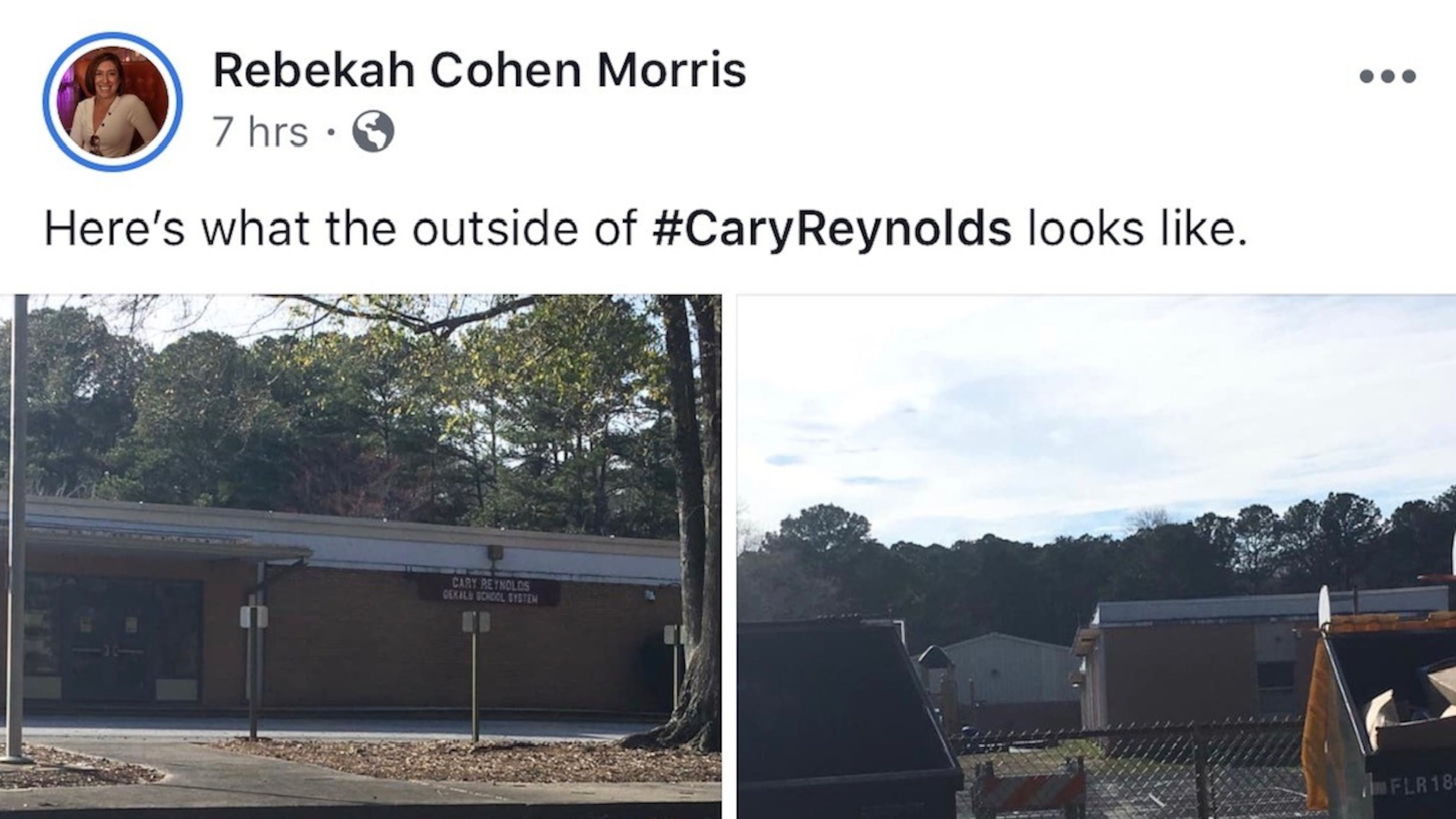Why teachers often share quietly, not for the record

During the first week of school in August, several dozen metro Atlanta teachers sent emails to reporters detailing conditions inside their classrooms.
Air conditioning was not working. Ceiling tiles were saturated with water from leaking heating and cooling systems. Mold had grown up walls and mildew had settled into carpets. In some cases, the written details were accompanied by photo evidence.
None was willing to talk about the problems on the record, and that's not unusual.
Some metro Atlanta school districts have policies against employees speaking to reporters without prior approval from the district office. Teachers who contact reporters often do so from email accounts that do not identify them, or ask that they not be named, fearing retaliation.
Ten teachers were contacted for this article. Five declined. Two responded on why they feel the need to speak out.
For Rebekah Cohen Morris, speaking often about issues is a way to shine a light on problems and seek solutions. Even so, she said going outside official district channels was a last resort.
“The issues teachers and students faced — and still face — in DeKalb were not things I could ignore,” said Morris, who returned to Gwinnett County Schools last fall after several years teaching for DeKalb Schools, which she left in 2017. “I went through the chain of command multiple times before deciding to “tweet” about something, speak to the press, or speak before the (school board). I tried to work with parents in the district to raise their concerns. I sent emails and had multiple meetings with my local school principal, assistant principals, school technology coordinators, etc.
“When none of these avenues seemed to work, I decided the issues were just too important and that this was negatively impacting kids’ achievement with every day that passed without action.”
She said, “I decided that if speaking up meant I didn’t get promoted — or that I would eventually face retaliation — it was worth it because kids and teachers deserve well-functioning, safe, and successful schools. I felt that it was morally wrong to sit by and let months of inaction pass, when I knew there was something more that I could do.”
This week, Morris posted several dozen photos of maintenance issues at Cary Reynolds and Montclair elementary schools — DeKalb schools — showing missing ceiling tiles, chipped paint, overflowing trash receptacles and trash cans placed under leaks in roofs, catching the falling water.
After speaking for this article, she said "I'm not going to be sick to my stomach all day. I'm going to go teach in my classroom and work with students and try to make small impacts in individual lives. Which really is all that many teachers want to do."
DeKalb County School District teacher Monise Seward said she’s spoken to reporters over the years because she wanted to make sure an accurate narrative was being given.
“I don’t want anyone to be my representative,” said Seward, who teaches at Henderson Middle School. “I don’t trust anyone to deliver my message. It could be tailored to fit the ‘everything’s fine’ narrative. Public education is too steeped in politics and appearances. No one wants to hear the truth.”



